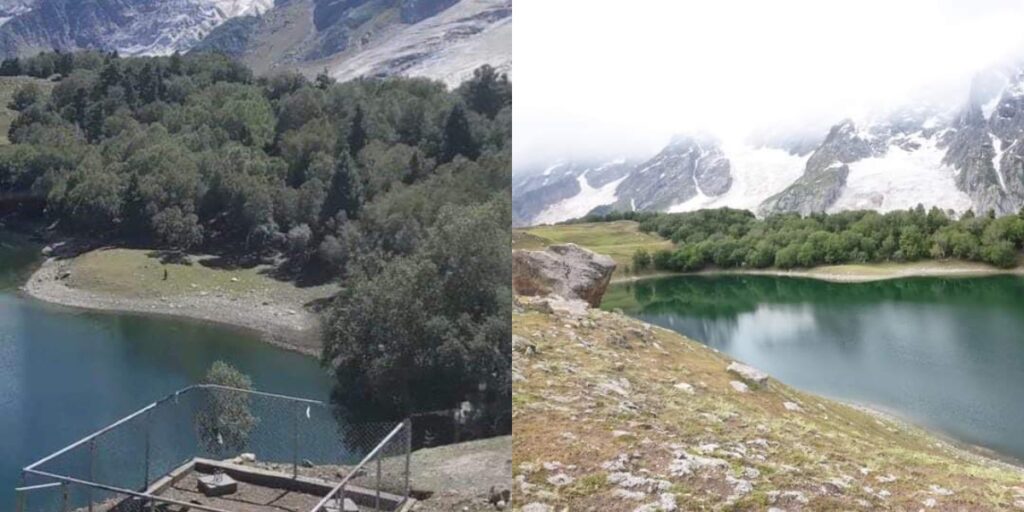- Web Desk
- Feb 24, 2026
GB-EPA accuses GLOF-II Project of environmental harm at Kutwal Lake
-

- Hum News Tanveer Abbas
- Sep 25, 2024

GILGIT: The Gilgit-Baltistan Environmental Protection Agency (GB-EPA) has raised concerns over the degradation of the natural environment and aesthetic beauty of Kutwal Lake in Haramosh Valley of Gilgit-Baltistan due to the establishment of an Automatic Weather Station (AWS) platform, part of the project’s effort to mitigate Glacial Lake Outburst Floods (GLOFs).
In an official letter addressed to the Regional Coordinator of the GLOF-II Project, the GB-EPA expressed serious concerns about the project’s non-compliance with provincial environmental laws, specifically citing violations of the Gilgit-Baltistan Environmental Protection Act of 2014 and the Establishment of Data Acquisition Stations (Rules, 2018). The letter highlights that the GLOF-II/UNDP team proceeded with construction without obtaining the necessary environmental approvals despite repeated reminders dating back to January 2020 and March 2023.
The project, which aims to reduce the risk of GLOFs through the installation of early warning systems and hydrological monitoring stations, has been praised for its objectives. However, the execution has come under fire for allegedly causing significant environmental harm, particularly at Kutwal Lake, a popular tourist destination in the Haramosh region. Recent social media posts have brought attention to the damage, showing photographic evidence of the disruption to the area’s natural beauty and ecological balance.
The GB-EPA’s letter highlights that the AWS platform’s construction, along with other related infrastructure, has not only marred the aesthetic value of the pristine alpine lake but has also raised alarms about the long-term ecological consequences. The high-altitude lake, known for its serene beauty and delicate ecosystem, is a significant tourist attraction, drawing adventurers and nature lovers from across the world.
While the need for early warning systems and weather monitoring stations is crucial for preventing disaster scenarios caused by glacial melt and floods, environmental advocates are calling for a balanced approach.
The GB-EPA has stressed that any infrastructure aimed at reducing GLOF risks must adhere to stringent environmental protocols to avoid exacerbating the very issues they are designed to mitigate.
The agency’s letter outlines several key violations, including the failure of the GLOF-II/UNDP project team to seek approvals for environmental impact assessments, as mandated by law.
Additionally, the project has not complied with Section 5 of the 2018 rules, which require that data acquisition stations be established in approved locations with the consent of relevant local authorities.
In light of the situation, the GB-EPA has demanded immediate corrective action, including the suspension of all physical work at the site until the required environmental approvals are obtained. They have also called for the relocation of the AWS platform to a more suitable site, one that does not compromise the ecological and aesthetic integrity of Kutwal Lake.
Read more: Maryam Nawaz asks KP govt to focus on public needs instead of “vandalism”
The GB-EPA has warned that failure to comply with these directives could result in legal action under the Gilgit-Baltistan Environmental Protection Act of 2014, alongside a hefty fine of Rs. 5 million to restore the degraded area.
The GLOF-II project, backed by the United Nations Development Programme (UNDP), was launched to address the growing threat of GLOFs in Pakistan’s northern regions, which have seen an increase in glacial melt due to climate change.




